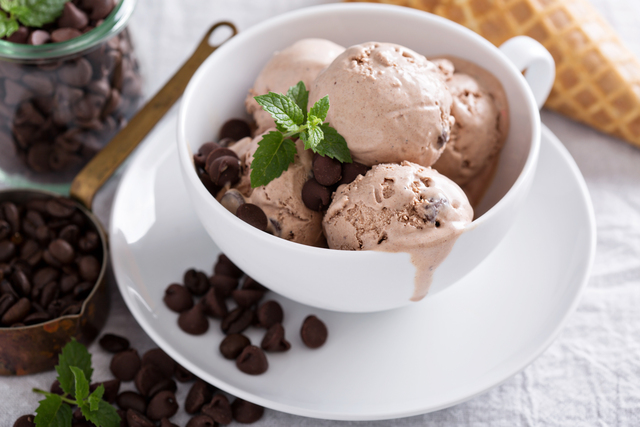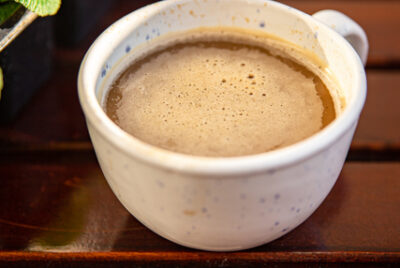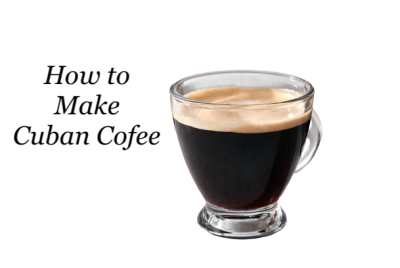Does Coffee Ice Cream Have Caffeine?
As a fellow ice cream and coffee lover, I’m often asked the question: Does coffee ice cream have caffeine?
It’s a tasty topic, and I’m thrilled to dig into it with you. Let’s explore this delightful blend of dessert and caffeine together!
Understanding Caffeine in Coffee Ice Cream
To grasp the concept of caffeine in coffee ice cream, it’s crucial first to understand what caffeine is and how it ends up in our ice cream.
Caffeine is a natural stimulant found in a variety of plants, including coffee beans, tea leaves, and cacao pods. It works by stimulating the brain and central nervous system, helping you stay alert and preventing the onset of tiredness. Now, imagine this stimulant infused in your favorite dessert! It’s quite the treat for those of us who love a caffeine kick.
How is Coffee Ice Cream Made?
When it comes to making coffee ice cream, the process is quite similar to making regular ice cream, with one key twist – the addition of coffee. The basic ingredients for ice cream include milk, cream, and sugar.
Coffee ice cream is typically made by first brewing a strong pot of coffee. This coffee is then mixed with the milk and cream, and this coffee-infused dairy is used as the base of the ice cream. This base is then churned to incorporate air, leading to that light and creamy texture we all love in our ice cream. The result is a delicious, creamy dessert with all the rich flavors of coffee and the cool, refreshing qualities of ice cream.
Why is There Caffeine in Coffee Ice Cream?
It all boils down to the coffee used in the ice cream. Just as a cup of coffee contains caffeine, so too does coffee ice cream. When you brew a pot of coffee to add to the ice cream mixture, the caffeine naturally present in the coffee beans gets infused into the liquid. This caffeinated liquid is then mixed into the ice cream base.
Therefore, the amount of caffeine in coffee ice cream directly correlates with the amount and type of coffee used. For example, if a recipe calls for strong, dark-roast coffee, the resulting ice cream will likely contain a relatively high amount of caffeine. On the other hand, if a light-roast or less coffee is used, the ice cream might contain a comparatively lower amount of caffeine.
The Amount of Caffeine in Coffee Ice Cream
If you’re concerned about your caffeine intake, you might be wondering exactly how much caffeine is present in coffee ice cream. The truth is, it can be hard to pinpoint a precise amount due to variations in recipes and preparation methods. However, we can certainly discuss general trends and factors that influence the caffeine content in coffee ice cream.
General Caffeine Content
On average, a standard serving of coffee ice cream can contain anywhere from 30-45 mg of caffeine. This estimate can be more than a cup of decaf coffee, which has about 2-15 mg per 8-ounce serving, or significantly less than a regular cup of coffee, which typically contains about 95 mg of caffeine per 8-ounce serving.
Of course, this amount can vary based on several factors, including the type and quantity of coffee used in the recipe, as well as the serving size of the ice cream.
Influence of Coffee Type and Quantity
Different types of coffee contain different amounts of caffeine. For instance, Robusta coffee beans contain almost double the caffeine content of Arabica beans. Therefore, if a recipe uses Robusta beans, it might have a higher caffeine content than one using Arabica beans.
Moreover, the amount of coffee used will also affect the caffeine level. The more coffee used in the recipe, the higher the caffeine content will be.
Serving Size Matters
When it comes to caffeine intake, the size of the serving is an essential factor to consider. Naturally, a larger serving will contain more caffeine than a smaller one. So, if you’re watching your caffeine intake, pay attention not just to the presence of caffeine but also to how much ice cream you’re eating.
Comparing with Other Caffeinated Foods and Drinks
It’s helpful to put the caffeine content of coffee ice cream into perspective by comparing it with other common caffeinated foods and beverages.
Coffee
As we discussed, a regular cup of coffee has approximately 95 mg of caffeine per 8-ounce serving. This amount can vary depending on the type of coffee bean used and the brewing method. For instance, a single shot of espresso, despite its small volume, can contain about 63 mg of caffeine. This makes a cup of coffee or an espresso shot significantly higher in caffeine than a typical serving of coffee ice cream.
Tea
Caffeine isn’t only present in coffee; it’s also a major component of many types of tea. On average, an 8-ounce serving of black tea contains around 47 mg of caffeine, while the same amount of green tea contains about 28 mg. While this is lower than the caffeine content in coffee, it’s still higher than what you might find in most servings of coffee ice cream.
Soft Drinks and Energy Drinks
Many popular soft drinks also contain caffeine, although the amounts can vary. For instance, a 12-ounce can of cola typically contains about 34 mg of caffeine. Energy drinks can have significantly more. Some brands contain up to 160 mg of caffeine per 16-ounce can, much higher than a serving of coffee ice cream.
Chocolate
Caffeine is also naturally found in cocoa beans, so foods containing chocolate will have some caffeine. A 1-ounce serving of dark chocolate can have around 12 mg of caffeine. So if you’re a fan of coffee-flavored ice cream with chocolate chunks or swirls, keep in mind that the chocolate can add a small amount of additional caffeine.
Who Should Be Cautious?
While this delicious treat may not pose a significant risk to many, there are certain individuals who should be more cautious about their consumption. Here’s a breakdown of who these groups are and why they should be mindful:
Pregnant Women
Caffeine readily crosses the placenta, which may impact the developing fetus as it can’t efficiently metabolize the caffeine. While moderate caffeine intake is generally considered safe during pregnancy, some studies suggest high caffeine intake may be linked to an increased risk of preterm birth or low birth weight. Therefore, pregnant women should limit their caffeine intake.
Children and Adolescents
Children and adolescents are more sensitive to caffeine and may experience effects such as jitteriness, nervousness, and upset stomach at lower amounts than adults. Additionally, caffeine can affect sleep quality, which is crucial for growth and development. As such, it’s best for this age group to limit consumption of caffeinated foods and beverages, including coffee ice cream.
Individuals with Certain Health Conditions
Certain health conditions may be exacerbated by caffeine. For example, those with heart conditions may experience increased heart rate or abnormal heart rhythms. Individuals with gastrointestinal disorders might have their symptoms worsened by caffeine, which stimulates gastric acid secretion. People with sleep disorders should also avoid caffeine, as it can disrupt sleep patterns.
Individuals Sensitive to Caffeine
Some people are naturally more sensitive to caffeine and may experience side effects such as insomnia, jitters, or heart palpitations even at relatively low levels of intake. If you notice these effects after consuming caffeine, you may want to cut back or avoid it altogether.
Always consult your healthcare provider if you have concerns about your caffeine consumption. It’s important to enjoy your coffee ice cream and other treats in moderation while also considering your personal health needs and tolerance.
Delicious Decaffeinated Alternatives
If the caffeine content is a concern for you, don’t fret – there are still plenty of ways to enjoy a similar flavor profile without the caffeine. Here are some delicious, decaffeinated alternatives for you to consider:
Decaffeinated Coffee Ice Cream
Some companies offer decaffeinated coffee ice cream which uses decaf coffee instead of regular coffee. This option gives you the coffee flavor you love without the caffeine. Do note that even decaffeinated coffee contains a small amount of caffeine, but the levels are usually negligible.
Coffee-flavored Desserts without Coffee
There are plenty of desserts that mimic the taste of coffee without containing any coffee or caffeine. For example, some sweet treats use natural and artificial flavors to replicate the rich and robust profile of coffee. You might try coffee-flavored cookies, cakes, or puddings.
Homemade Coffee Ice Cream with Herbal Coffee
If you enjoy making your own ice cream, consider using a caffeine-free herbal coffee substitute in your recipe. These products are made with a blend of herbs, nuts, and fruits designed to mimic the flavor of coffee, and they are naturally caffeine-free.
Chicory Root Ice Cream
Chicory root has a flavor that is remarkably similar to coffee and is often used as a coffee substitute. An ice cream made with chicory root can deliver that delicious coffee-like taste without the caffeine.
Remember, the aim is to enjoy your dessert without worrying about caffeine. These alternatives give you the freedom to do just that. However, if you’re ever unsure about a product’s caffeine content, don’t hesitate to reach out to the manufacturer for more information.
Conclusion
So, does coffee ice cream have caffeine? The short answer is, yes, it usually does. However, the amount can vary, and there are plenty of decaffeinated or caffeine-free alternatives for those who need or prefer them.
FAQs
How much caffeine is in coffee ice cream?
The caffeine content in coffee ice cream can vary widely depending on various factors such as the type and amount of coffee used, the brand of the ice cream, and the preparation method. It’s best to check the product label for precise information.
Can I have coffee ice cream if I’m sensitive to caffeine?
If you’re sensitive to caffeine, it’s best to opt for decaffeinated or caffeine-free alternatives.
Does decaffeinated coffee ice cream taste the same as regular coffee ice cream?
Decaffeinated coffee ice cream can taste just as delicious as regular coffee ice cream. The key difference is the absence of caffeine, not flavor.
Are there caffeine-free alternatives to coffee ice cream?
Yes, there are numerous caffeine-free alternatives. You can opt for different flavors like vanilla, strawberry, or chocolate, or try something exotic like matcha or lavender.
Does caffeine in coffee ice cream affect my health?
While caffeine has its benefits, too much of it can cause restlessness, increased heart rate, and disrupt sleep. Therefore, if you’re sensitive to caffeine, pregnant, or have certain health conditions, it’s best to limit your caffeine intake.
Will this ice cream cause dehydration because of caffeine? We answer the question “Does coffee dehydrate you?” in this article.
Will ice cream coffee stain my teeth? Yes, coffee ice cream can stain your teeth. The staining properties are due to the coffee content in the ice cream. We cover the question “Does coffee stains your teeth?” in detail here.




